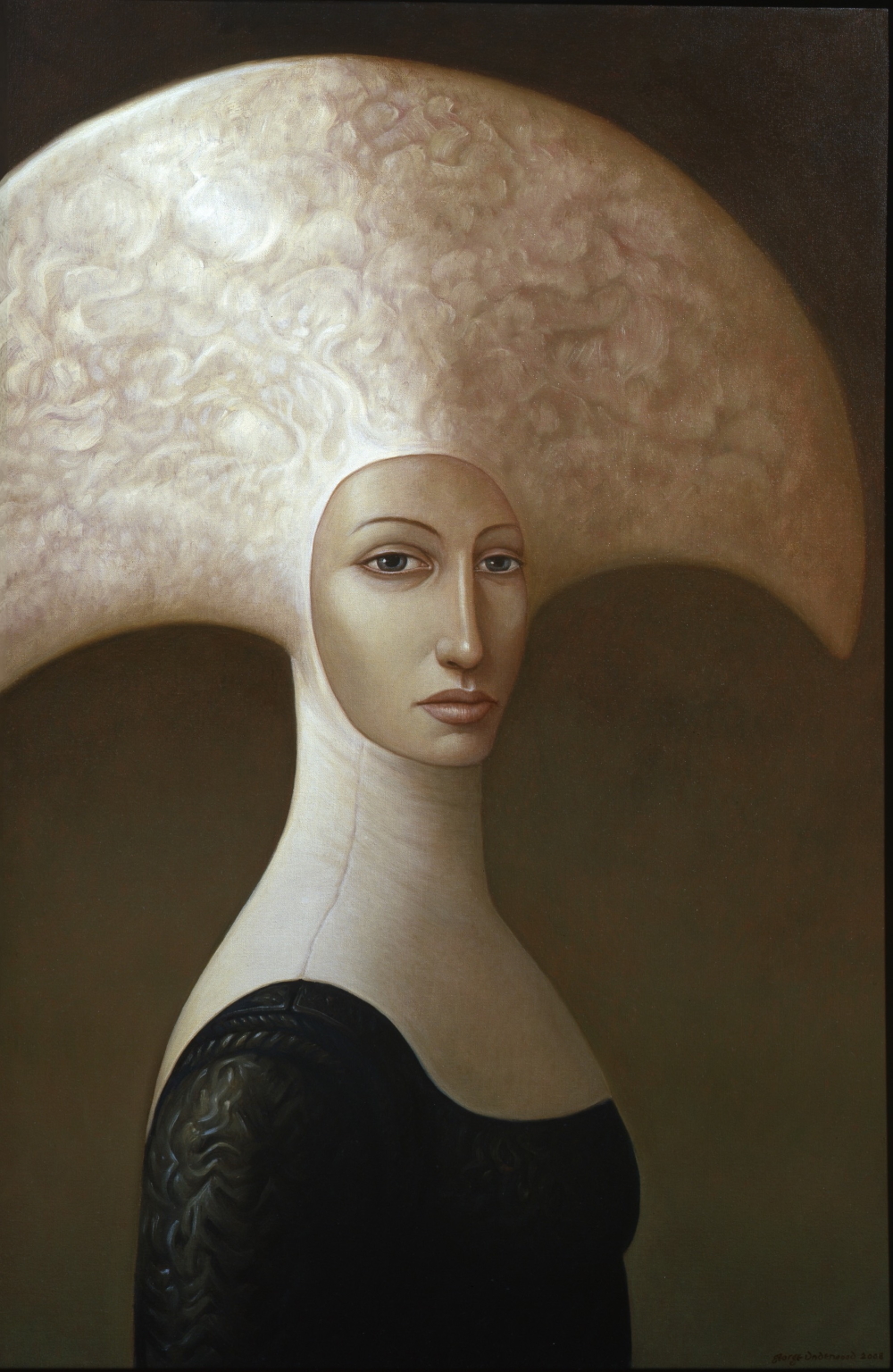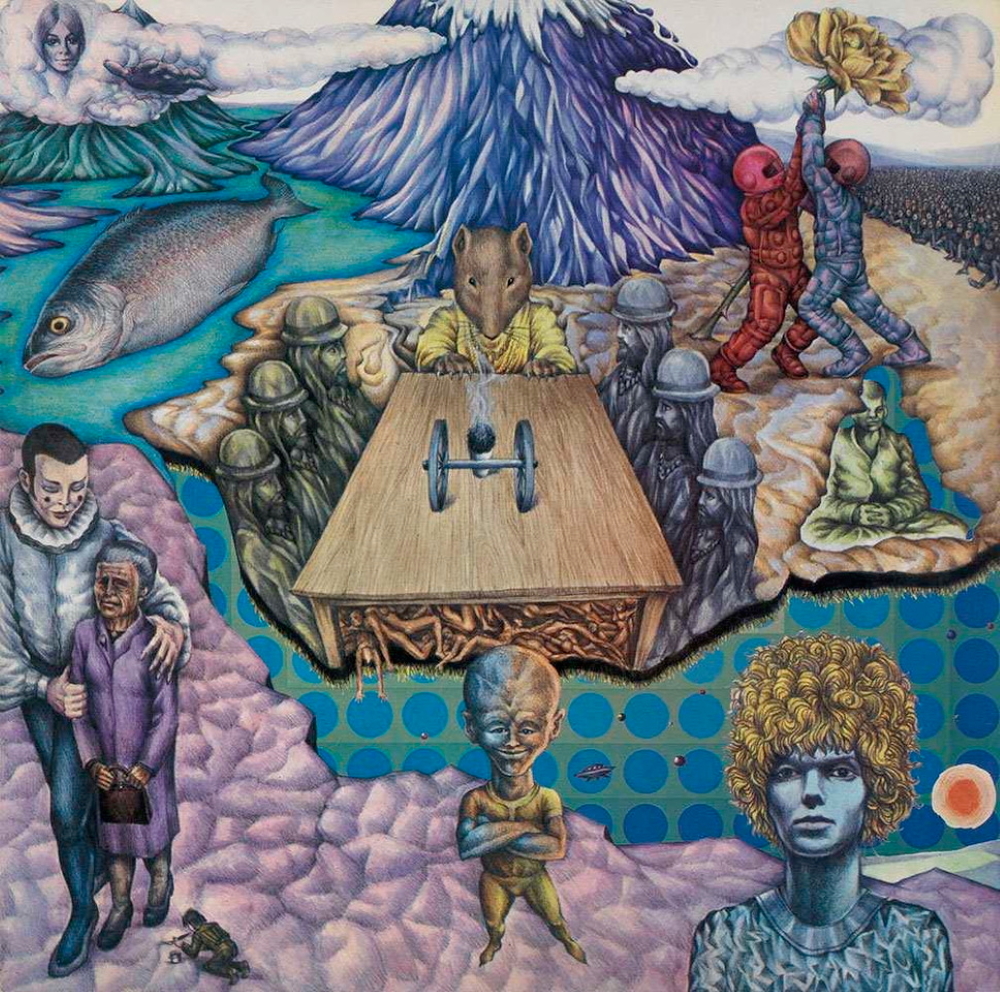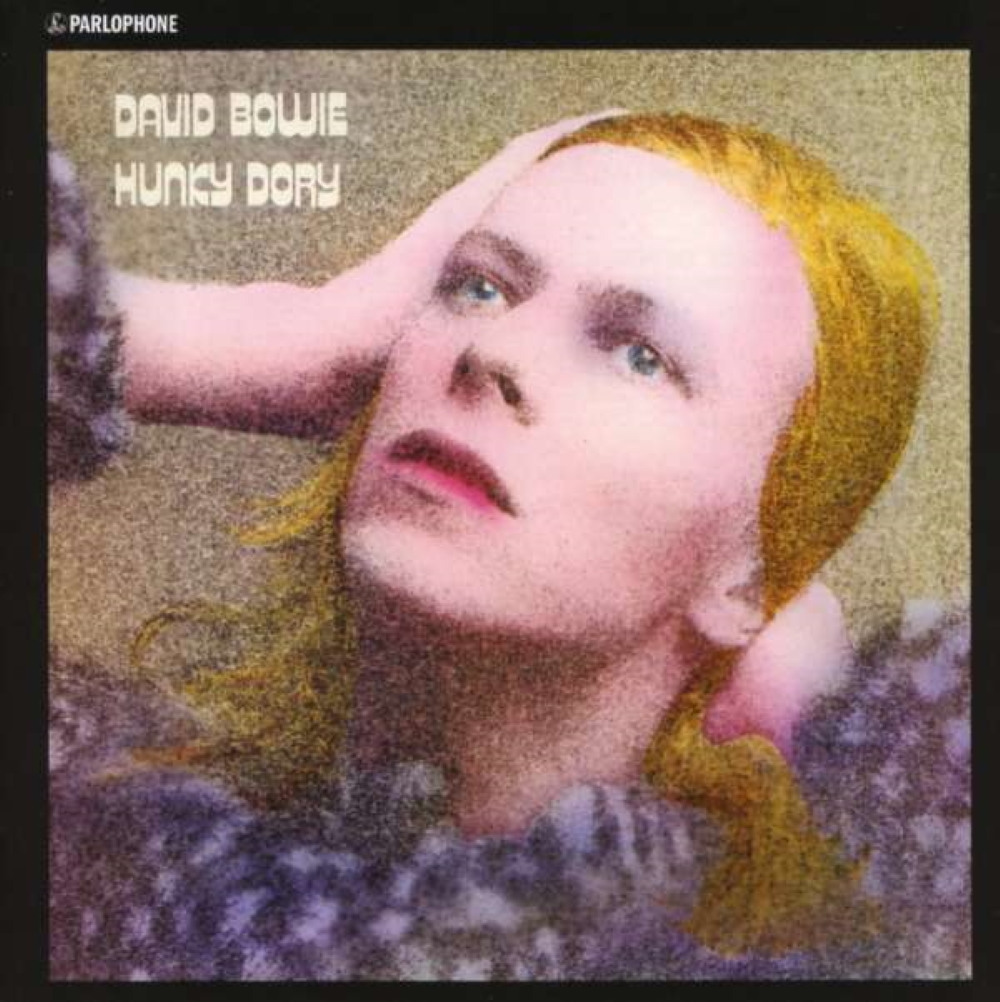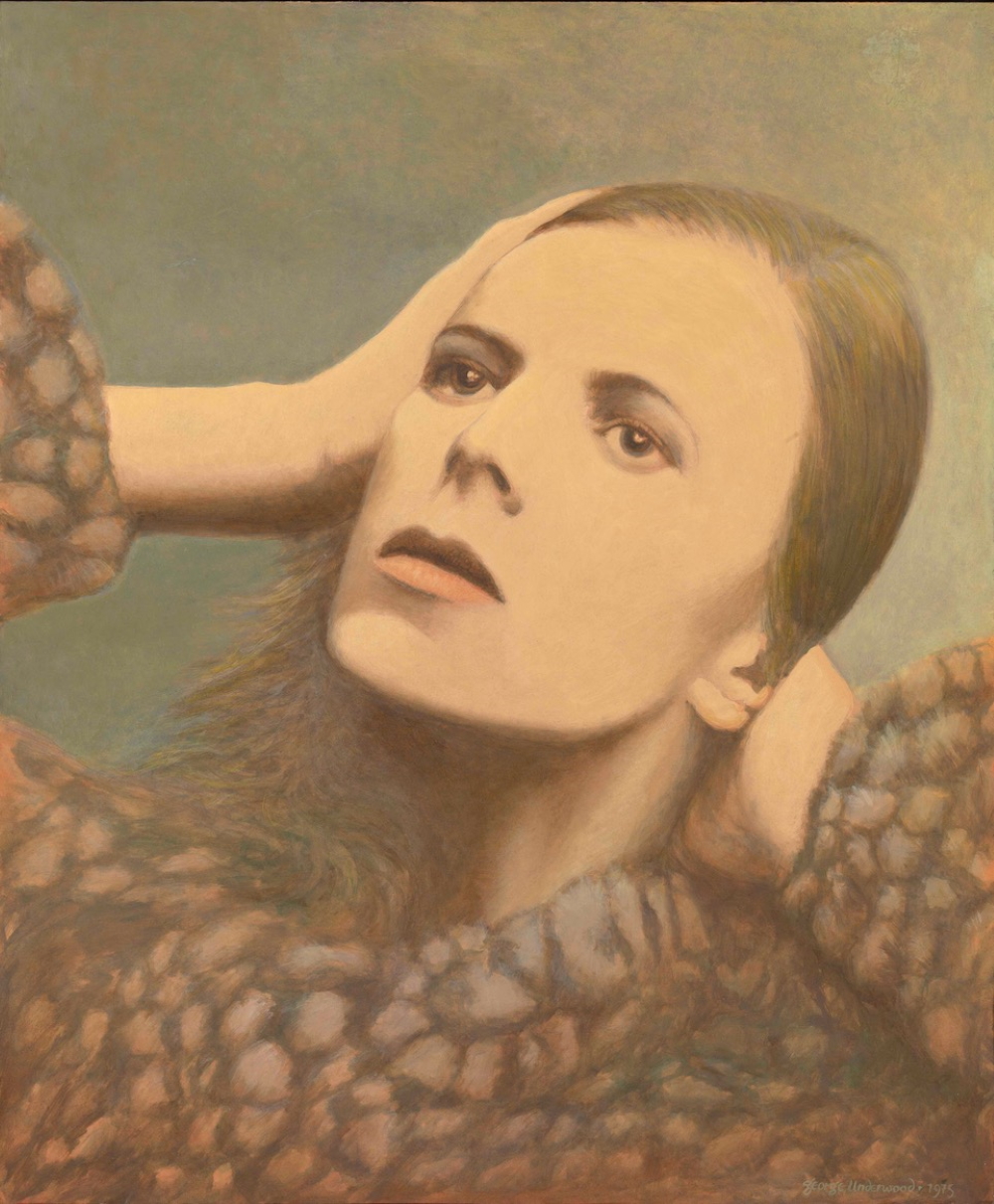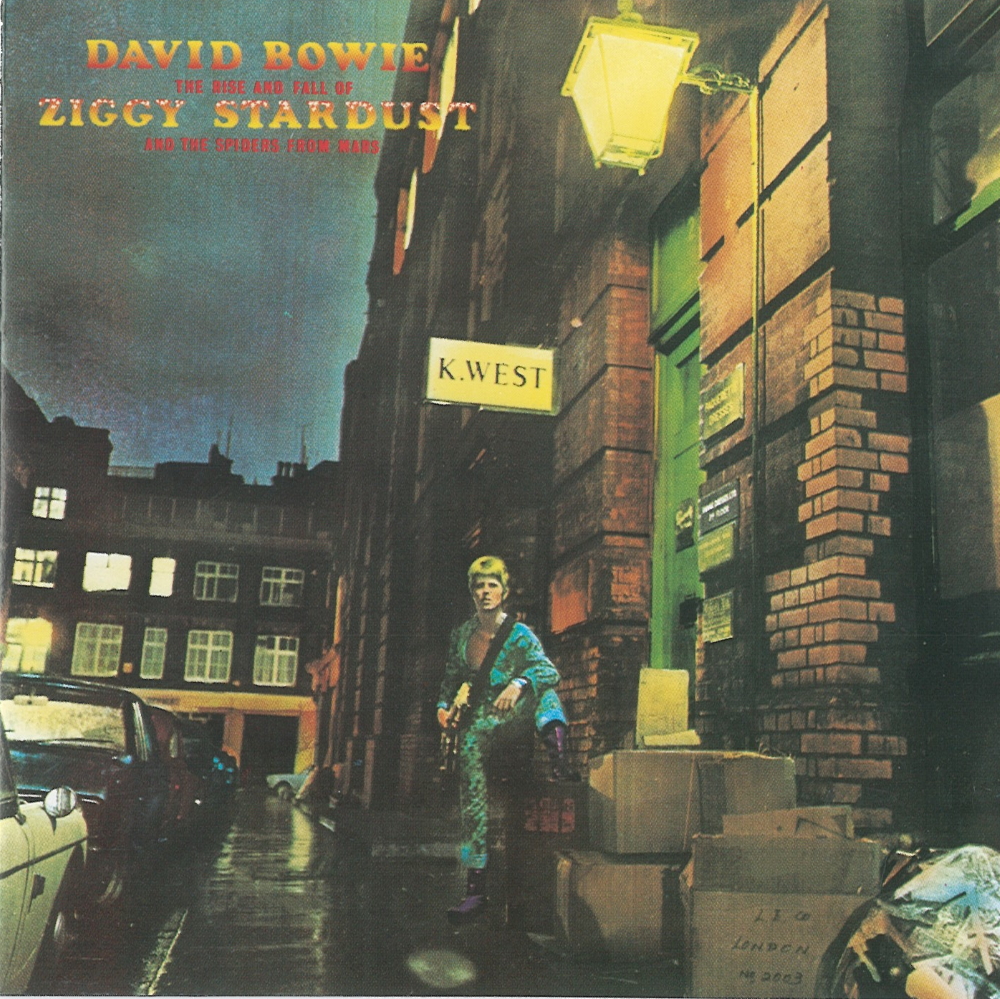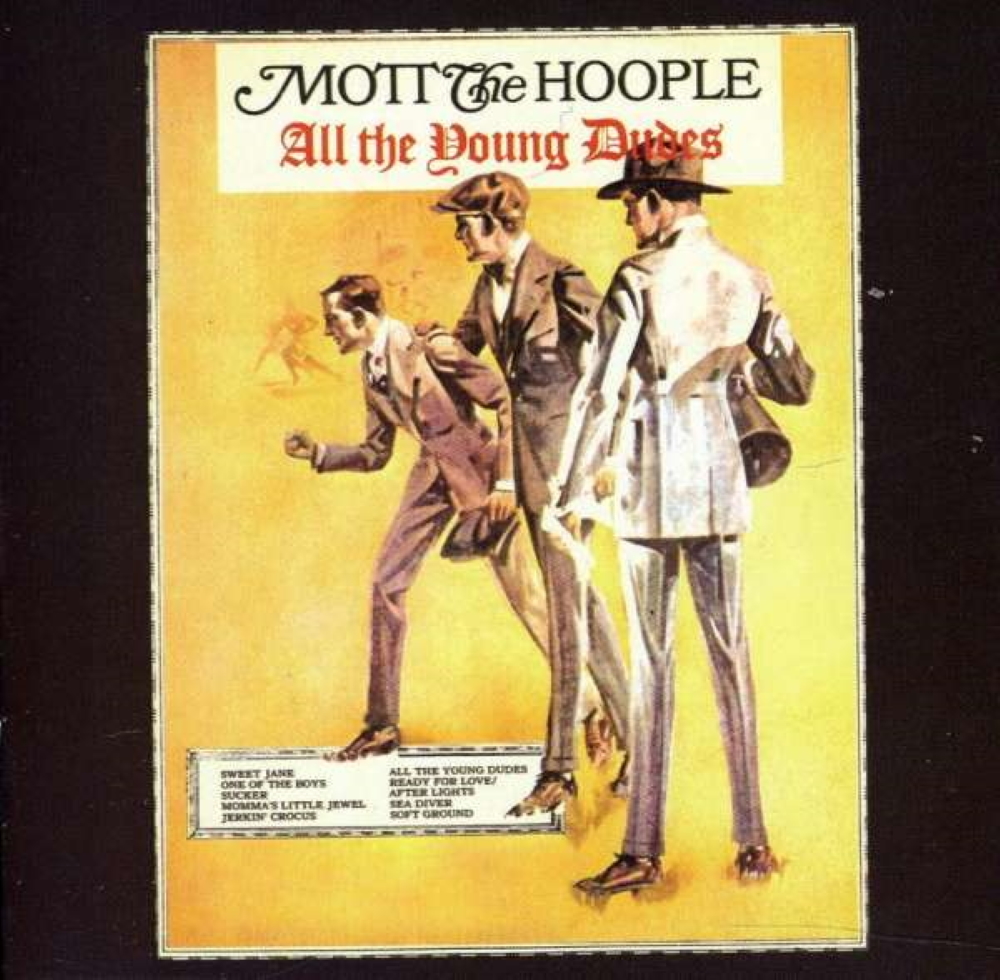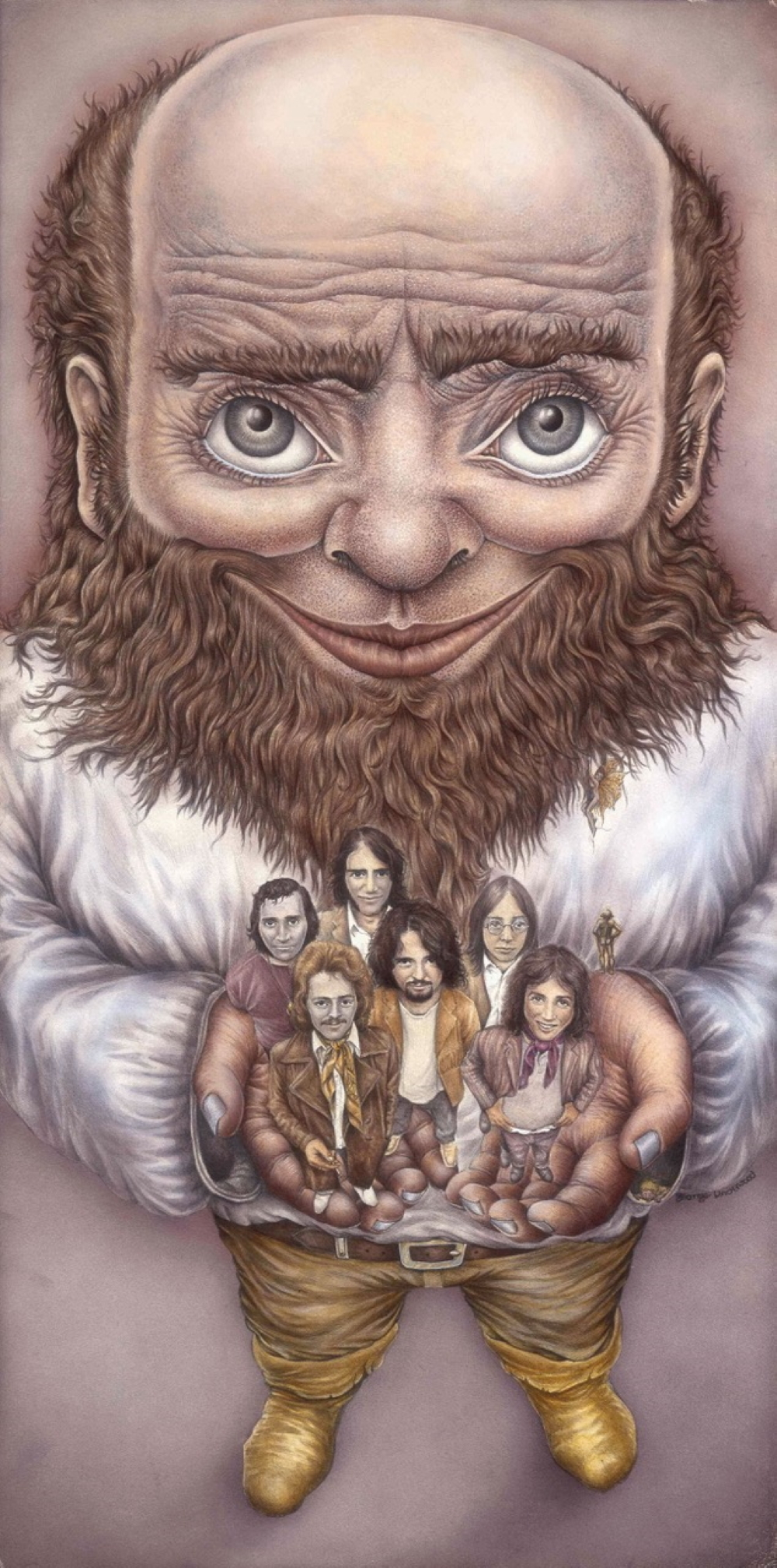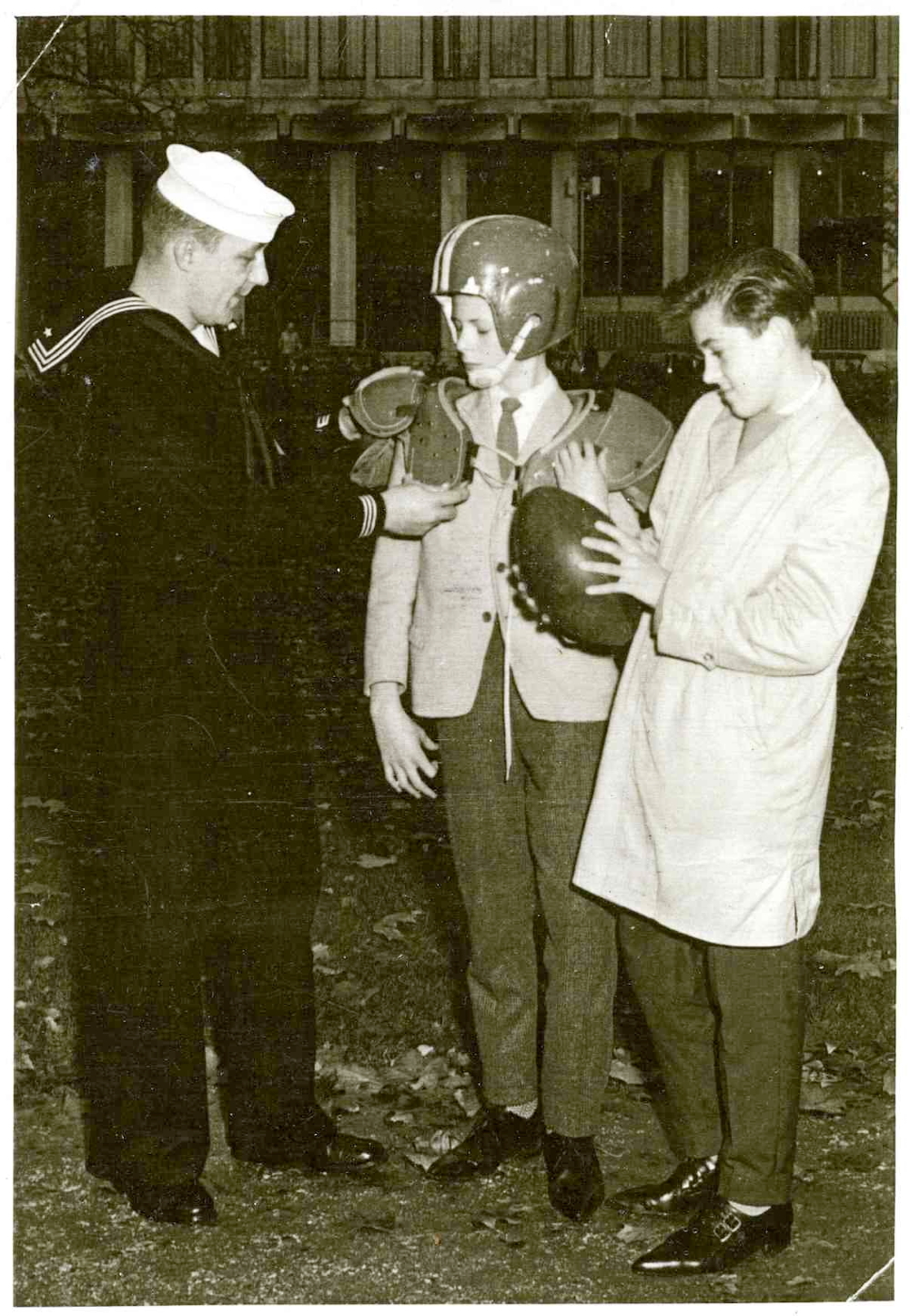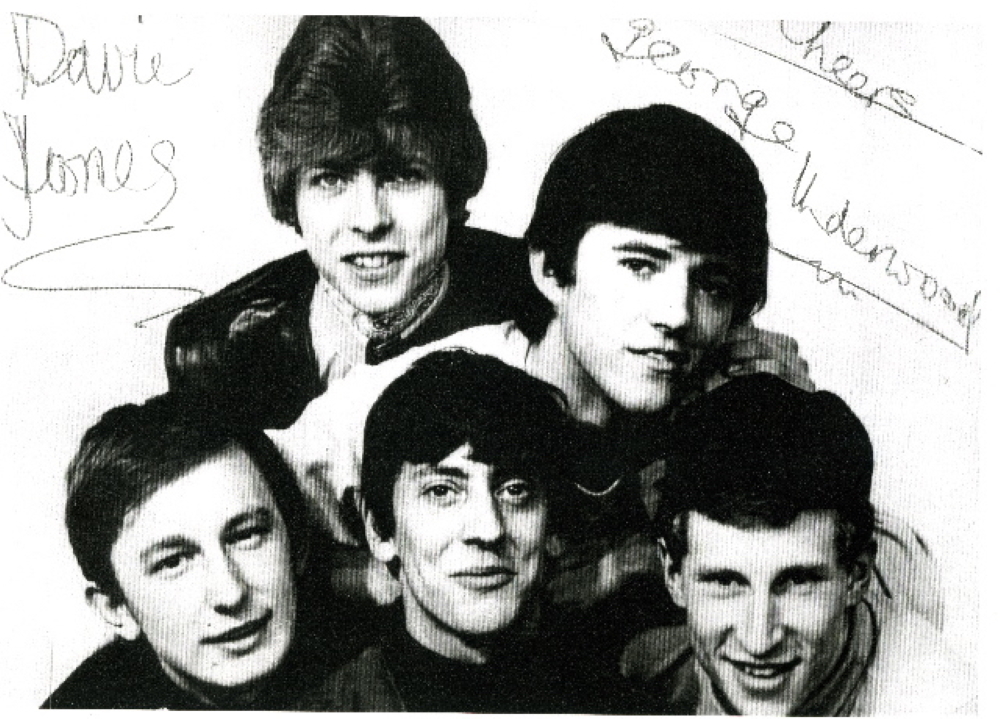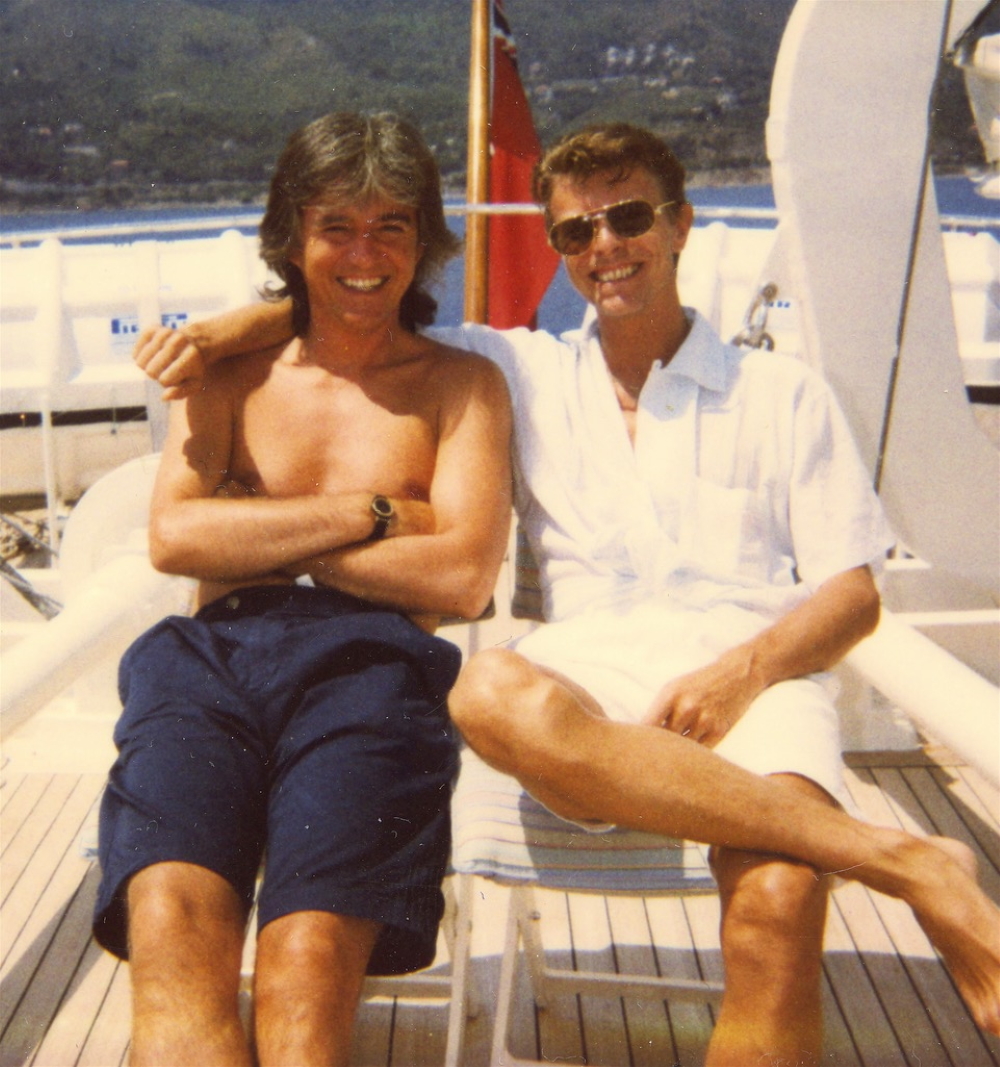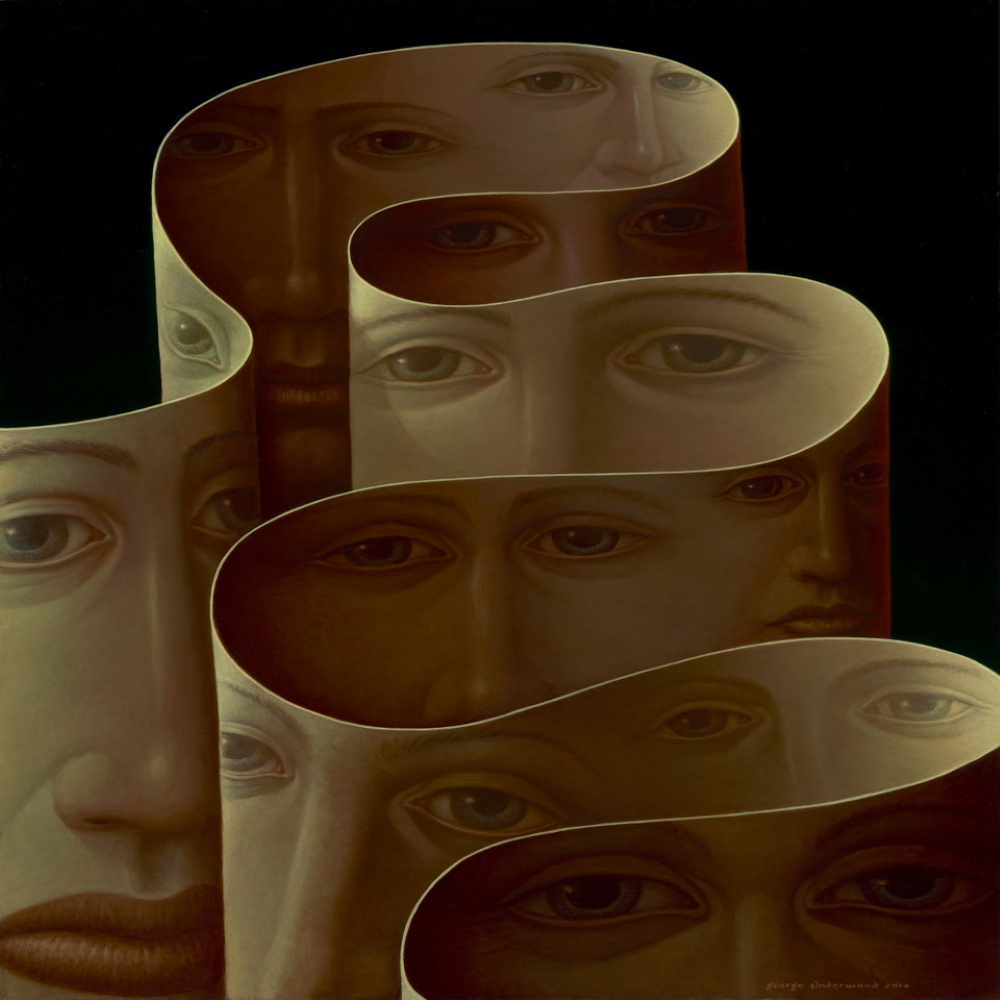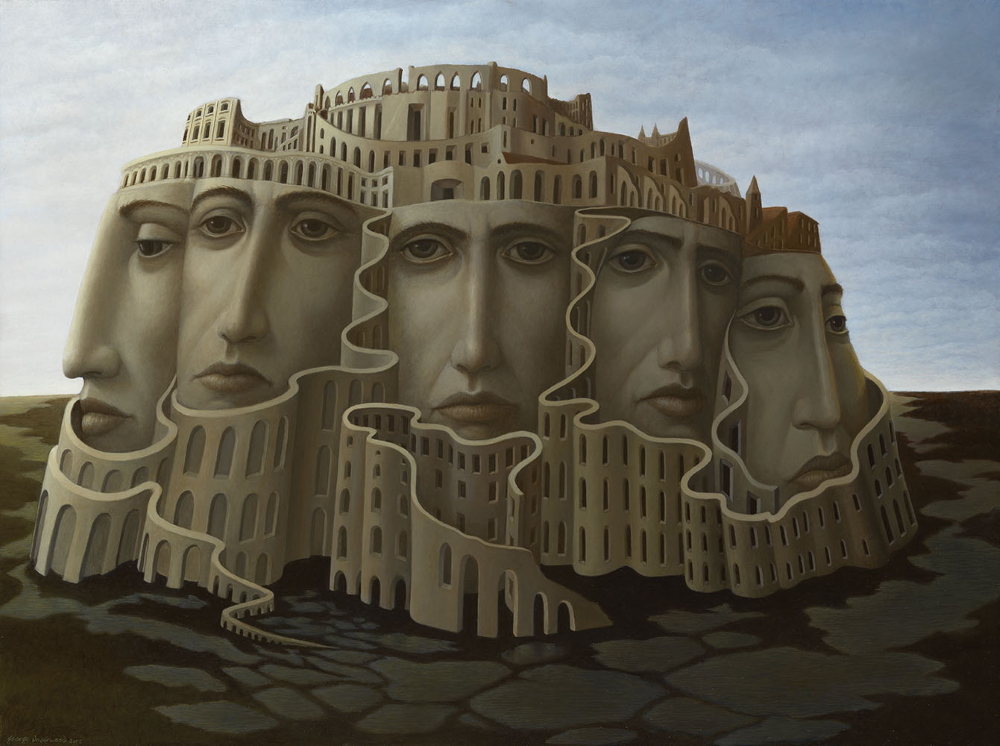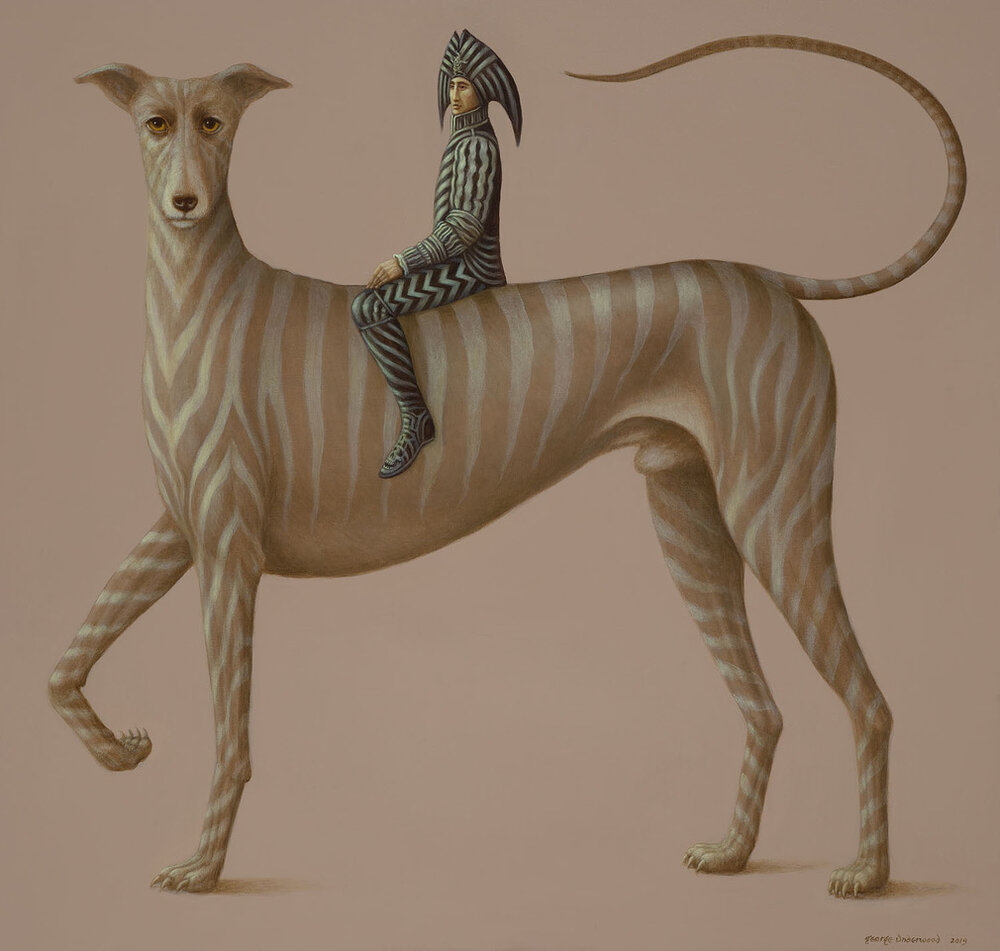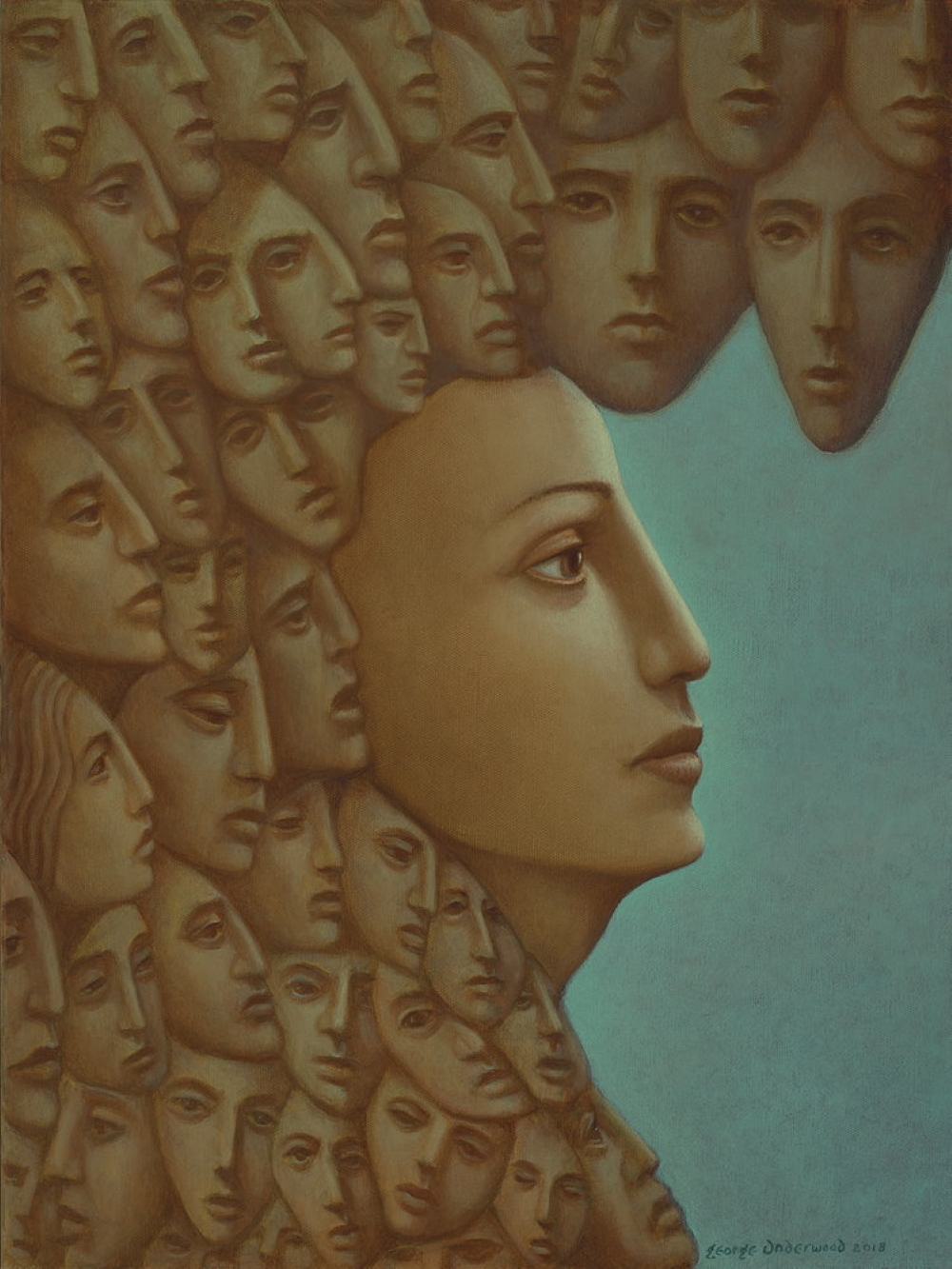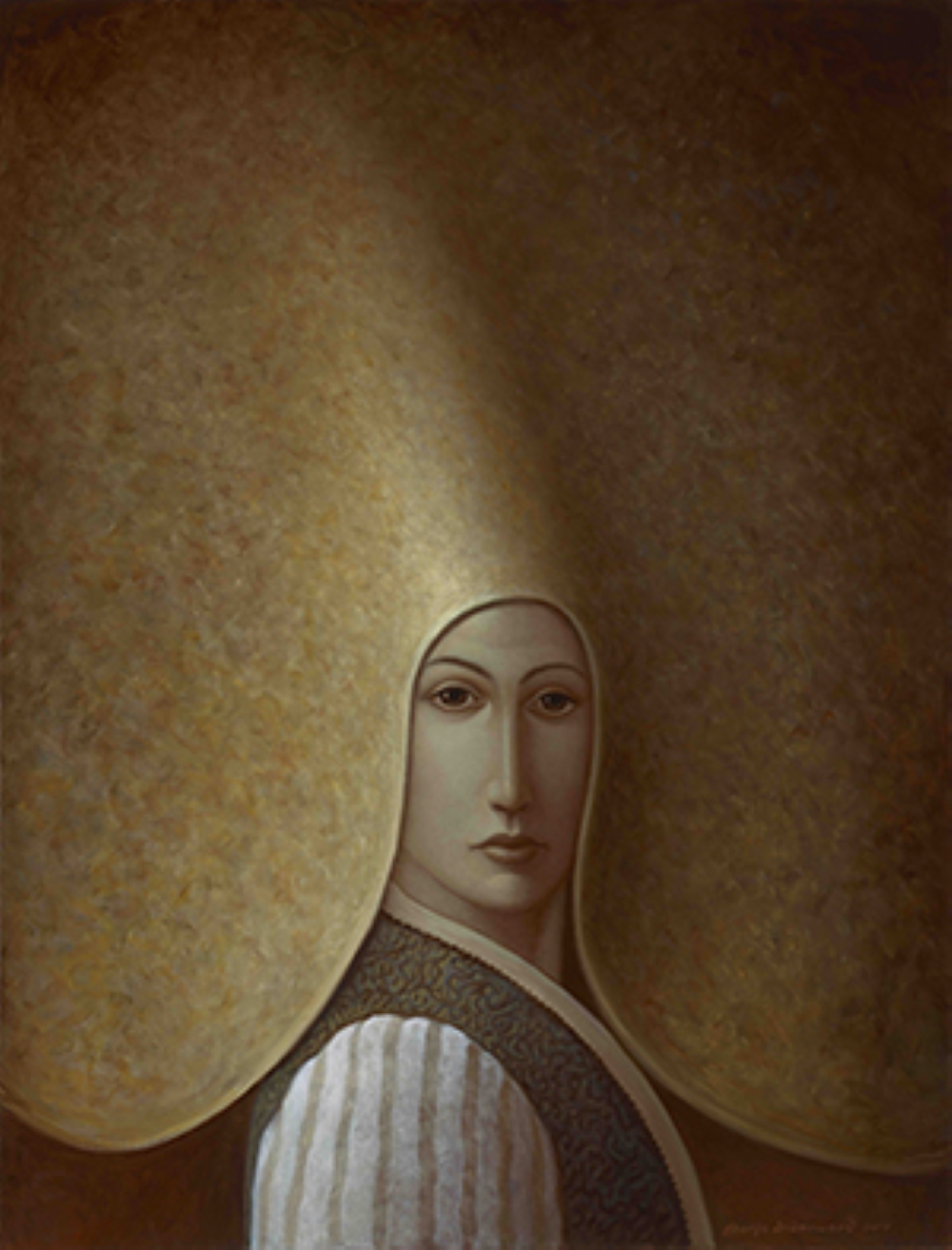George Underwood
painter (David Bowie's album-covers)
GB
David Bowie‘s albums 'Space Oddity' (1969), 'Hunky Dory' (1971) and especially 'The Rise and Fall of Ziggy Stardust' (1972) are considered classics. 'All the Young Dudes' by Mott The Hoople (title-song written by Bowie) took this band to avatars of the Glam Rock movement in 1972. Three popular examples out of a wide collection (including T.Rex, Procol Harum, Gentle Giant, The Fixx among others) whose covers present artwork by George Underwood - an artist who turned to creating surrealistic oil paintings later on successfully.
George Underwood
painter (David Bowie's album-covers)
GB
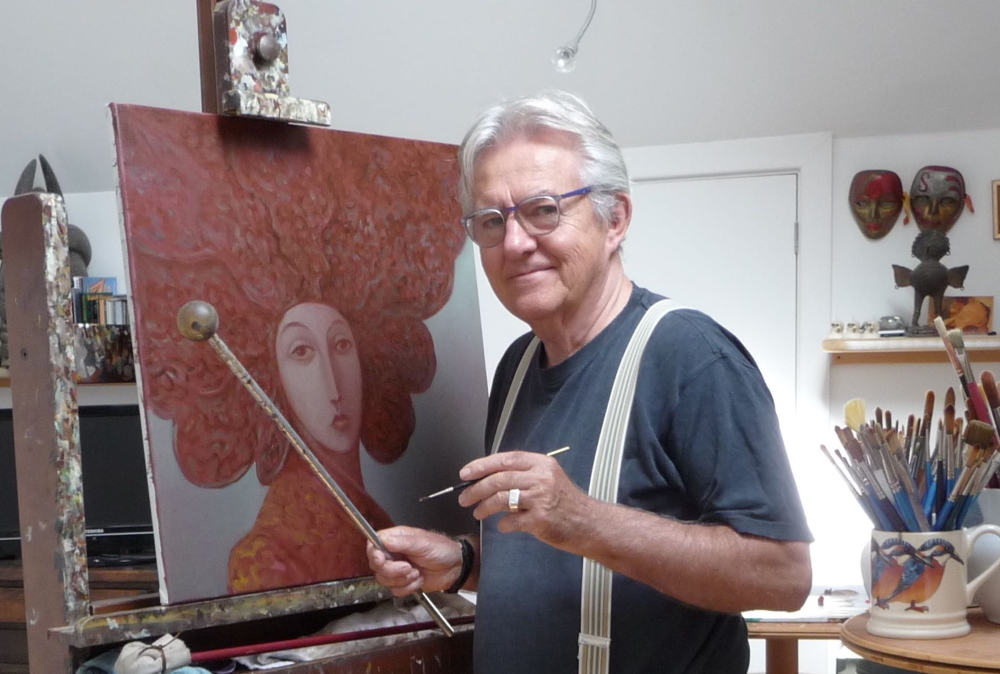
The man from Bromley/Kent (* 5 February 1947) was a childhood friend of David Bowie when the latter‘s parents had moved there in the early 1950s. „George Underwood attended Bromley Technical High School where he developed an interest in music alongside classmates David Bowie and Peter Frampton. Underwood, who was playing in the band ‚George and the Dragons‘ back then, once punched Bowie in the left eye, during a fight over a girl. The stroke caused paralysis in Bowie's left pupil and his distinctive mismatched appearance. The injury did not affect their friendship in the end, and Underwood went on to record the single 'Liza Jane' with Bowie (in their band The King Bees) and also a solo record under the name Calvin James.“ (Wikipedia)
After deciding that the music business was not for him, George returned to art studies and then worked in design studios as an illustrator. Initially he specialised in fantasy, horror and science fiction book covers. When colleagues from the music business began to commission art work from him, he formed the Main Artery Studio in 1971, which produced record sleeves‘ art work for numerous acts. This quickly established him as a leading creative in the album illustration world. Over this period George Underwood produced literally hundreds of book covers, LP and CD covers, advertisements, portraits and drawings. Furthermore he established himself as a mainstream illustrator with clients such as Levi's, Disney, Pirelli, Guiness, British Rail and Microsoft.
In 1973 George Underwood started painting in oils. His works were influenced at first by the Viennese School of Fantastic Realism – artists which included Ernst Fuchs, Rudolph Hausner and Eric Brauer. Underwood regarded them as contemporary visionaries like Bruegel and Bosch. He was fascinated by their imaginative visions. Imagination is the key word in Underwood’s paintings still. He rarely uses live models nowadays, prefering to invent people who inhabit their own personal world. His paintings are held in many private art collections worldwide.
David Bowie wrote in 2014 about his friend’s art: „It’s uncanny how George's images inhabit their own world so completely. He breathes an icy life force into them. They do not move. They are at permanent attention as though on parade. as though subjecting themselves to our scrutiny. I’ve always loved George’s work. I think he may well have unconsciously tipped me towards music. Sitting alongside him in art class convinced me (among others) that I would never achieve his fluidity of line, his sense of ‘rightness’ in relation to his subject. Whatever it was, I got my dad to advance me the money to buy an alto sax instead. Over the years George has risen above even his extraordinary beginnings and in my opinion is producing some of the best work of his long and fecund career.“
The book 'Soulful Warriors' (compiled and written by Tom Hovinbøle) is a 110 pages strong, full color insight to George’s life and work from his childhood up to the present day. It was published in 2017.
Mr. Underwood lives in Buxted/East Sussex (Great Britain).
Interview May 2022
Art for art’s sake: from rock album covers for David Bowie & Co. to own surrealistic visionary oil paintings
INTUITION/IMAGINATION
“Intuition is the key to everything “, said internationally acclaimed filmmaker David Lynch („Twin Peaks). „I think you could have an intellectual ability, but if you can sharpen your intuition, which they say is emotion and intellect joining together, then a knowingness occurs. “What sparks intuition for you, is it temporary or can it be engaged anytime?
Intuition is something I probably take for granted- in that I hope i can engage in it at any time. Which means I think it’s always there, waiting.
How does intuition present itself – being a gut feeling or a suspicious impression?
It’s going on all the time in my head, so it’s just a matter of tapping into it when required. The hard part is selecting the good stuff - rejecting the rubbish and knowing the difference.
Do you visualize something spontaneously in your mind’s eye - maybe in dreams?
Ideas have manifested themselves in dreams but rarely do they end up on the canvas.
What if there is a deadline, but no intuition? Does the first fuel the latter maybe?
Having a deadline definitely kick-starts the process.
Are great ideas based on intuition or by almost endless trials and errors that result in constant developments up until the final result?
The latter.
World-famous guitarist Carlos Santana said to me, when the “sky” opens and sends you a brainwave one has to grab that special spiritual moment for realising it before the clouds darken all again. What do you think about that?
Santana’s quote - that’s one way of describing the creative process , albeit a bit cosmic. That’s his vision which is fine.
Does every idea exist immaterially already and just has to be put into effect, i.e. is creativity in its profound purpose basically about transferring dreams into reality?
I do wonder sometimes about where that undefinable ‘thing’ comes from - that mark you just made on the canvas that can often bring the whole painting to life.
INSPIRATION
What inspires you and how do you stimulate this special form of imaginativeness?
Mine comes from various sources, but it’s the accumulation of all the books, films, music, paintings I have experienced throughout my life that are stored away somewhere in my head.
I grab a pencil and start scribbling in my sketchbook.
How do you separate the good from the bad and which ideas are worthwhile to be explored further or whether one idea has the potential of being outstanding really?
I want the ideas for my work to be intelligent.
I want to make the viewer think.
I would like my work to have a conversation with the spectator.
What key characteristic does an idea need to be viable i.e. does it have to appeal to you personally or promise commercial potential/fulfil certain needs?
It has to appeal to me personally.
Do you sometimes revisit old(er) ideas (especially in tough times of need)?
I have many sketchbooks in my studio that I have filled over the years with ideas - some just scribbles, some more detailed.
I do look through them when I am searching for some stimulus for the start of a painting.
How long do you ponder an idea before creatively working on it?
I ponder a lot.
You have to be very fussy when deciding what will work.
Do you check what colleagues/competitors are up to/your role models contrive(d)?
I can see on social media what other artists are up to. It’s good to be informed.
CREATIVITY
Which path do you take from theory/idea to creation i.e. how do you start?
I can tell within a few hours whether a painting works or not. In fact, in one day most of the information is there, albeit slightly rough.
What does your average creative day look like (early bird or night worker)?
I am not an early starter - usually around 10 - 10.30 am.
When I was younger I would sometimes work through the night. I don’t do that anymore. Usually finish early evening around 6 pm.
How important are self-doubt and criticism (by others) during such a process?
My wife, Birgit is the first person I show my work in progress to. She is my best critic and often sees things in the painting that I hadn’t noticed.
I don’t show it to anyone else until it is finished.
Is it better to be creative on your own, only trust your own instincts, or in a team?
I work on my own which is essential.
Does age/life experience help with creativity or is a younger mind more creative, ‘cos it’s fresh and untouched by experience? What about social/cultural heritage?
The age thing - I hope my creative juices are still flowing after 75 years on this planet.
They were overflowing when I was 19 but that was the 1960’s when things were a bit bonkers.
What is your personal approach/motivation/concern regarding creative activity?
I now paint for myself.
Earlier in my career I was mostly doing it to pay the rent.
If you’d make a pie-chart: what is your satisfaction based upon - a) self-realisation/ personal compliance, b) artistic recognition or c) commercial success & fame?
I get great satisfaction from feedback of people who have my paintings and tell me they still enjoy looking at them every day.
How does a creative find his/her own style/possibly unique way of expression?
Over the years I have been commissioned to do all sorts of styles which weren’t necessarily my ideas. However, throughout that time I would always do paintings for myself in my own style knowing that one day I might be able to exhibit them in a gallery somewhere.
I knew I always had a ‘style’ which was unique to me, but it took a while to cultivate it.
Is craftmanship important or should creatives be able to work 100% unloaded?
Through trial and error you eventually end up with a ‘technique’ which you find suits you. It’s difficult to erase that knowledge and it can get in the way of ‘spontaneity’ if you are not careful.
I try to juggle the two things.
If problems occur during the creativity or one’s stuck, how can that be solved?
Getting stuck - I try and work through it, but if it’s still not working I just abandon the painting by covering it over and starting again.
You must know when to stop which is different from never giving up.
Which is better in the development process: speed and – if that’s possible - force creativity i.e. grasp the magic of the moment, or a slow, ripening process when it comes to implementation and elaboration?
When things go well with a painting, I can’t believe how fast I work.
Detail takes time which slowly pulls it all together.
Should a creative always remain true to him-/herself including taking risks & going against the flow or must one, for reasons of (commercial) survival, make concessions to the demands of the market, the wishes of clients and the audience’s expectations?
Always be true to yourself is an oldie but a goodie.
How is innovation still possible if one has established a distinctive style?
I suppose innovation means different things to different people. I try to be innovative within my style.
Is it good to be ahead of one’s time even one hazards not being understood at all?
A person who is ahead of their time never realises it until the time has passed.
In case of failure or - worse - a creativity crisis how do you get out of such a hole?
I often have a creativity crisis or a dry spell. It doesn’t last long thank goodness. I usually manage to work it out.
SUCCESS
Why are some people successful and others not - despite the same talents?
Maybe some people are more prepared when opportunity comes along.
There’s no such thing as luck.
Should/can one resist the temptation to recycle a ‘formula’ one’s successful with?
Recycling a formula sounds like a recipe for creative disaster.
Is it desirable to create the ultimate/timeless work, but doesn’t “top of the ladder” bring up the question of “what’s next?” i.e. isn’t such a personal peak “the end”?
Sounds like the ‘second album syndrome’.
I think my best work is the one I am about to start.
MY FAVORITE WORK:
Gosh, that’s a tough one. I did a painting titled ‘I Believe In You’ which was accepted into the Royal Academy Summer show in 2008. It was one of those “Where did that come from” moments when I painted it.
